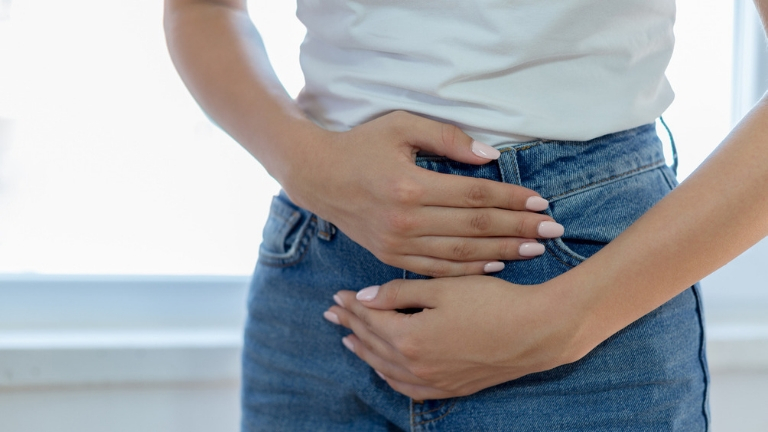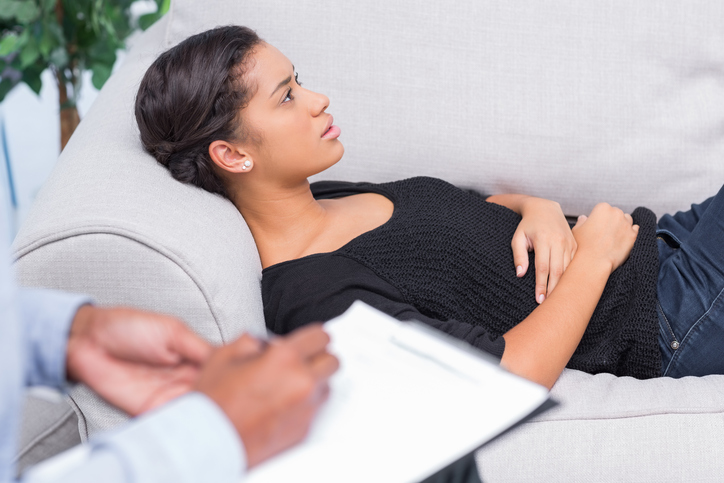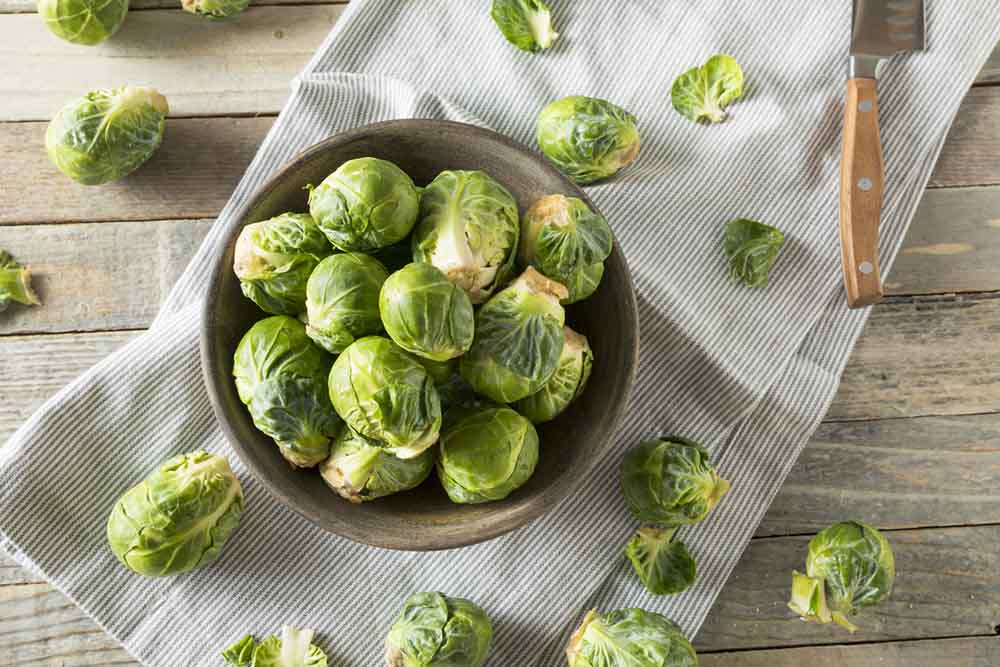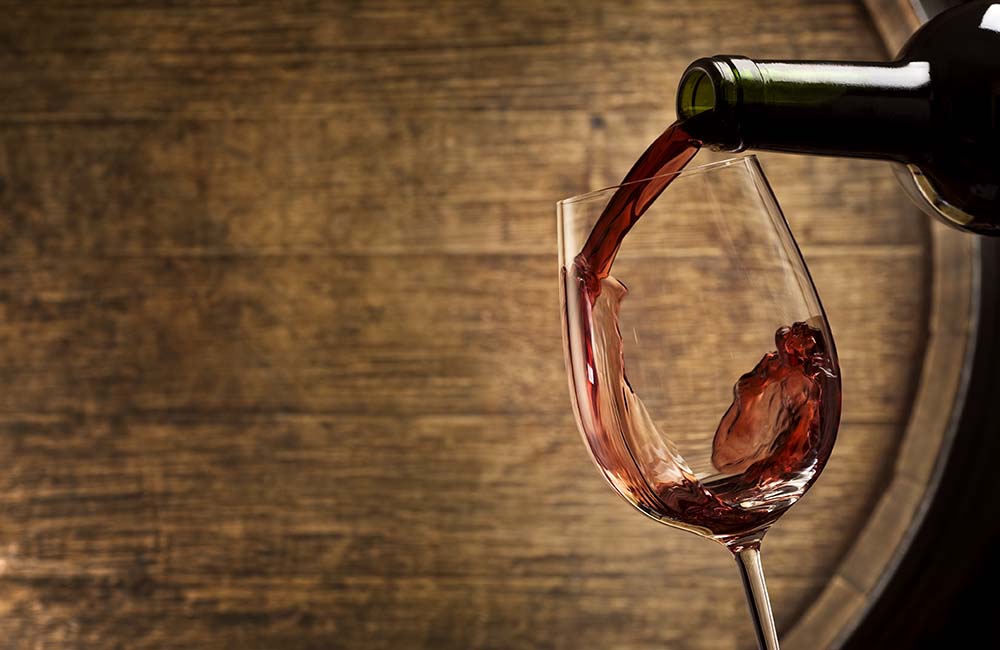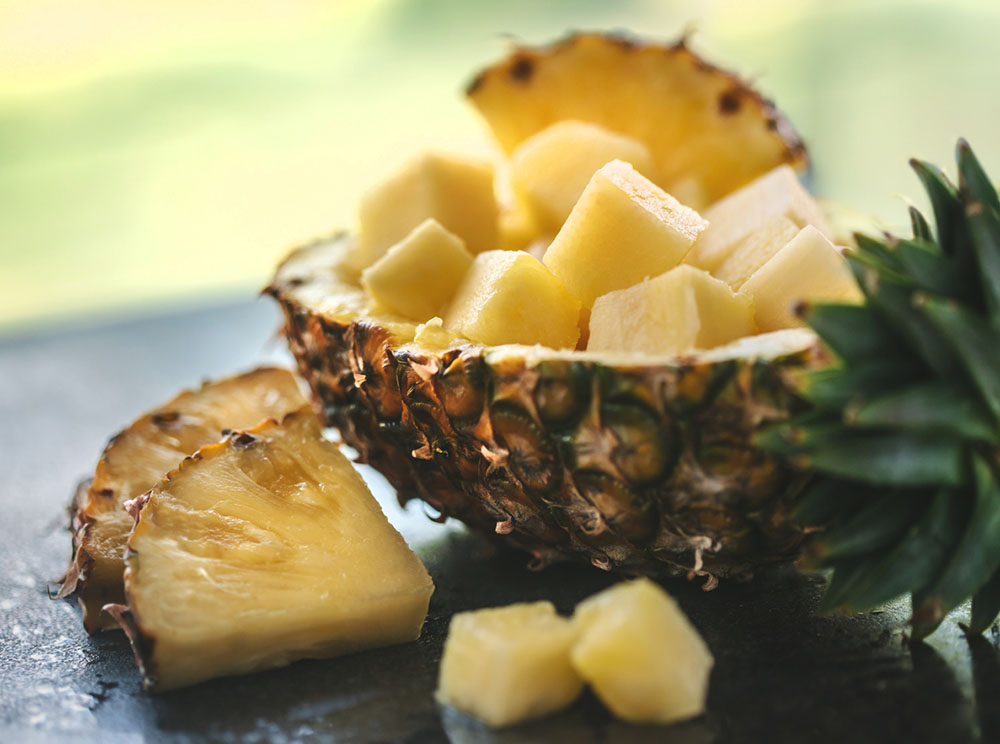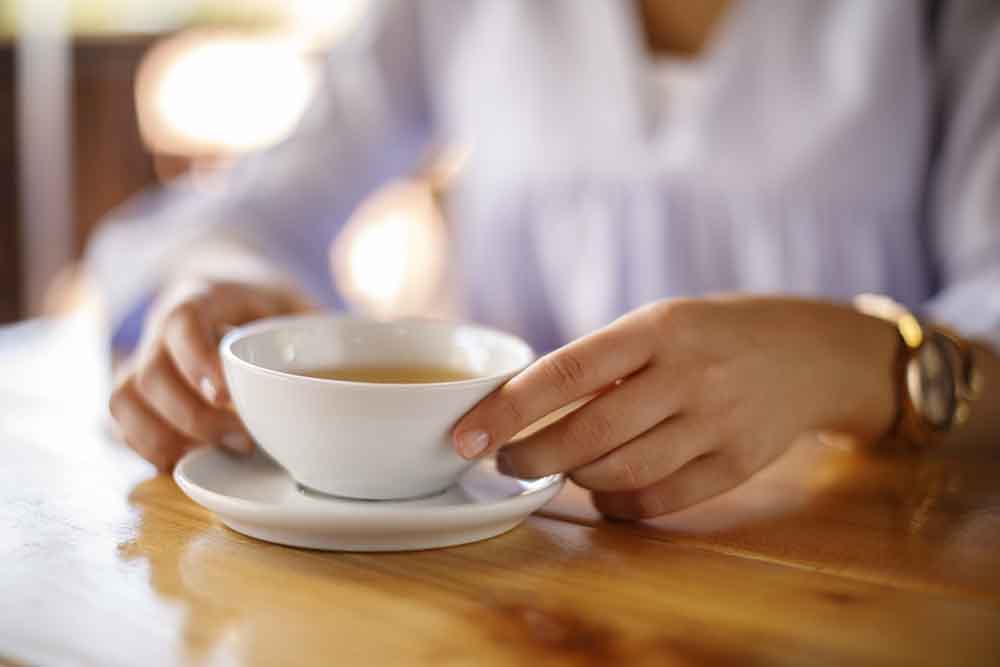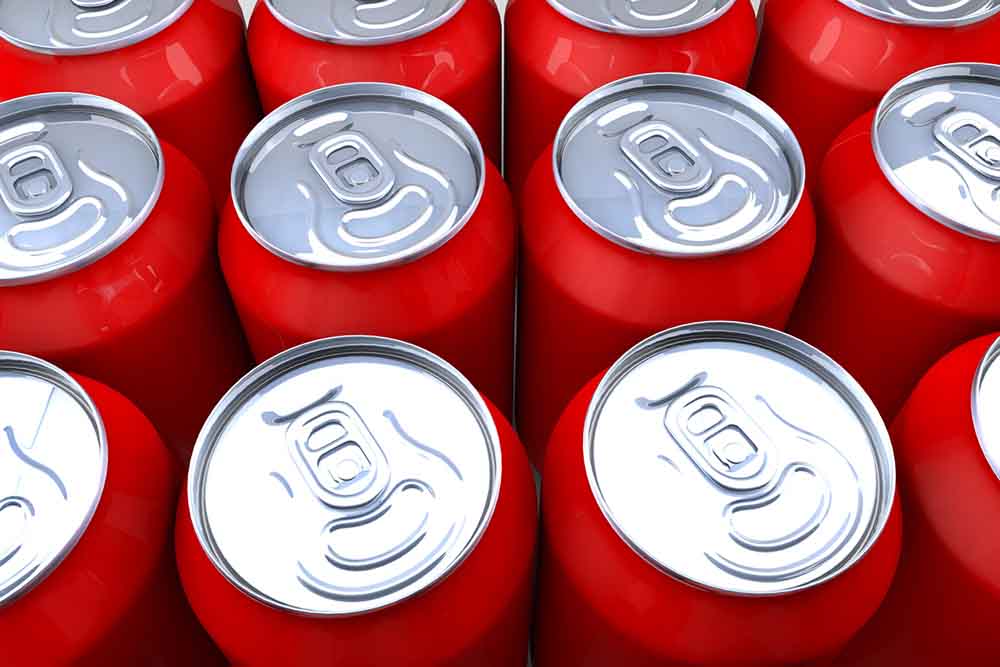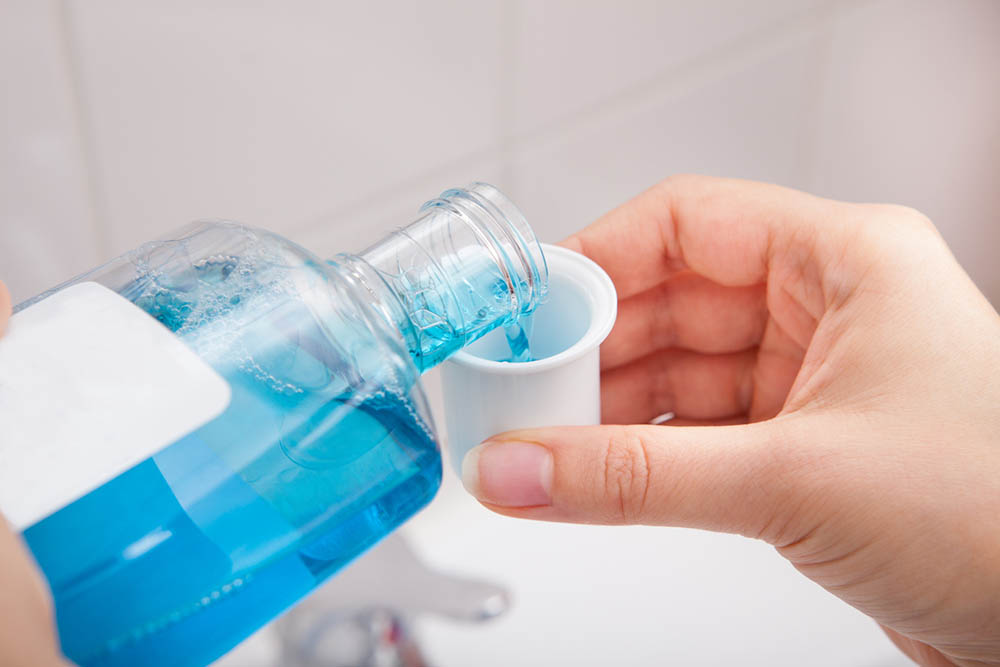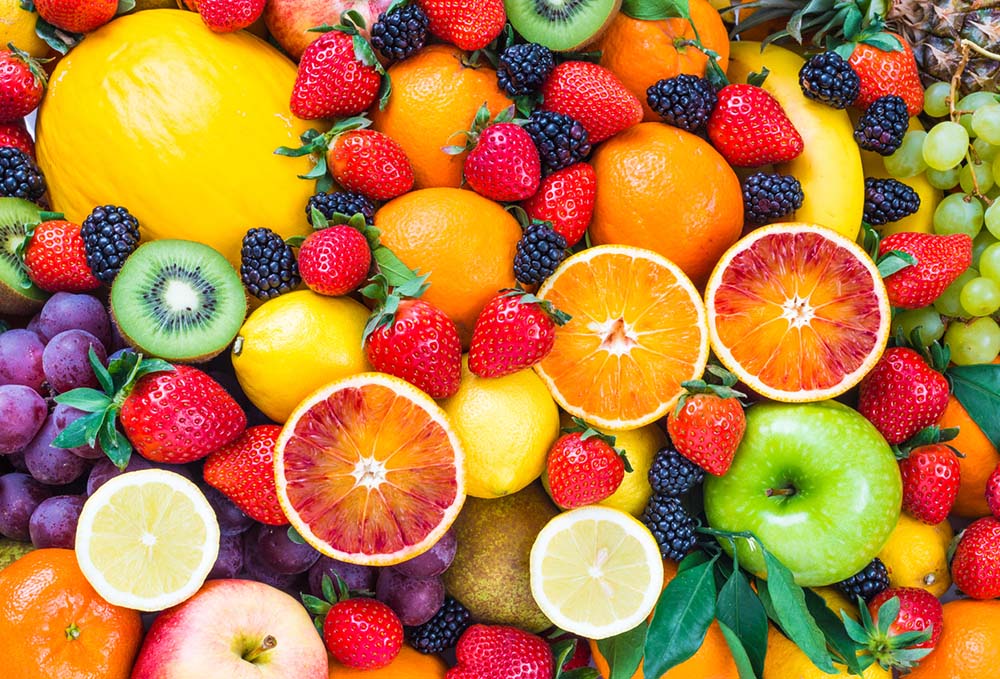Bloating, burping and cramping are common symptoms of IBS and can get worse if your gut health isn’t in tip top shape. So for IBS Awareness Month Healthista will be brining you 30 gut health tips for the next 30 days for all your gut health needs
Irritable Bowel Syndrome (IBS) can lead to recurrent abdominal pain, general feelings of stomach discomfort, changes in bowel habits as well as common symptoms of bloating, burping, feeling full, cramping and nausea – which doesn’t sound too fun does it?
While one in five of us suffer regularly with Irritable Bowel Syndrome (IBS) and the diarrhoea, cramping and bloating that comes with it, new research by Healthista has revealed that 41 per cent of us live with the symptoms, and a large majority have yet to be diagnosed.
While doctors usually prescribe short term help to deal with the symptoms, there are also longer term fixes out there that could help lessen and even eventually, clear up your symptoms.
It is important though to see a doctor first if your IBS symptoms are bothering you, this is so you can rule out any other medical causes.
If you know you have IBS and would like to try some things yourself that will lessen or stop you symptoms, these 30 gut health tips will help.
Gut health tip #30 Get up from your desk every hour
It seems obvious that it’s not exactly healthy for those of us who sit at a desk all day, and unfortunately it’s bad news for our gut health too.
Moving around encourages peristalsis, which is a fancy word for helping food and waste move through the bowel quicker.
We need to move for our gut bacteria to thrive, this is because the movement triggers the short chain fatty acids which keeps the gut lining healthy.
Try getting up from your desk and moving around once an hour. Go for a walk around the office or walk up and down the stairs a few times, that way people wont think you’ve gone made by walking in circles.
Gut health tip #29 Try incorporating yoga into your daily routine
You may be running at one hundred miles per hour, and unfortunately most of us have jobs that require nothing less, but try as much as you can to chill out, as over-stressing can be bad news for your gut.
It turns out IBS could also be worsened by your mental health. In a 2014 review in the World Journal of Gastroenterology authors say, ‘More and more clinical and experimental evidence has showed that IBS is a combination of irritable bowel and irritable brain’.
Stress is considered a key cause of IBS symptoms, suggesting whatever is going on in your mind could be having a direct impact on your gut health, which again links to the brain-gut connection.
Try to relieve your stress with yoga or meditation. Taking 20-30 minutes out of your day to practice yoga will significantly help your stress levels, try Healthista’s Beginner’s yoga course with leading yoga teacher Julie Montagu.
Gut health tip #28 Avoid bright lights before bed
This includes avoiding your mobile phone, social media, your iPad as you are approaching bed time – if you can.
According to research by Travelodge, 70% of us send a Tweet last thing at night, while 20% of us scroll through of our news feeds in bed for up to 16 minutes and this is affecting our sleep patterns, with most of us only clocking up 6 hours 21 minutes a night, 1 hour 39 minutes short of the recommended eight hours.
Not great for our powers of concentration but possibly not ideal for gut health either as research shows a good night’s sleep benefits our gut bacteria.
Gut health tip #27 Go to bed at a similar time every night
Often it seems that people who sleep badly are the ones who end up with gut dysbiosis or an imbalance in the gut and so it follows that by looking after our sleep we could improve our gut bacteria.
First of all try and go to bed at a similar time every night. That isn’t always possible, but aim towards going to bed nearest to a regular time as you possibly can.
We can’t emphasise enough the effects of taking care of your stress levels too, as these can significantly impact the quality of your sleep. Getting enough sleep is important, as is using things like yoga and relaxation to deal with the pressures of life.
Gut health tip #26 Improve your sleep ‘hygiene’
A large number of lifestyle factors can influence the way our guts function. Start with looking at your sleep routine.
Many people sleep poorly, and that has a significant impact on the way your bowels function. It’s all very well saying you just need to get eight hours of sleep every night, because in reality that is really difficult.
Getting enough sleep is difficult for a number of reasons, such as having busy lives or because when we go to bed we don’t always have the best sleep hygiene or bedtime routine, meaning the quality of our sleep isn’t always that good.
Your gut and your stress levels are inextricably linked. In fact, the gut is the organ with the greatest number of nerve cells in the body, even more than the brain and we know the gut has the greatest quantity of serotonin within it which is the neurotransmitter we associate with mood and happiness.
So you can imagine if your gut is going awry, those feelings will influence your emotions and vice versa. That’s why we see a lot of depression, anxiety and mood issues in people with gut problems – but we rarely know which came first, the mood problems or the gut issues, they both impact each other.
Gut health tip #25 Watch out for stoned fruit
Try to avoid eating stoned fruit such as plums, peaches, nectarines and mango. This is (no)thanks to fructose. Fructose and sorbitol (sugar alcohol) are the sugary compounds found in every fruit, and some people have great trouble digesting these and therefore will experience bloating symptoms.
Gut health tip #24 Limit your intake of onions and garlic
Food such as onions, lentils, rye, cabbage, broccoli, Brussels sprouts, beans and dried fruits are all high in FODMAPS and so are poorly absorbed by the gut.
As a result, they pass through and into the colon where they are fermented by bacteria. This leads to excess gas being produced that causes cramping, bloating, wind and pain.
Limiting the two foods that give food most of their flavour is just not fair. But unfortunately, if your gut symptoms are driving you crazy it may perhaps be a step that you need to think about taking as both these foods are considered to be high in FODMAPS.
Gut health tip #23 Hypnotherapy may be the answer
Although there is a small amount of trials to support the theory, many note that hypnotherapy is undoubtedly beneficial for a number of those with IBS. This is because the brain and bowel are connected – hence why we all may get butterflies or an upset stomach when we are nervous.
When you look at the brain and gut as being a dynamic thing that all of us have, what IBS is, in a way, is a disorder of this complex interaction between brain and gut and what we put in the tank.
Researchers at Withington Hospital, where the first UK hypnotherapy unit was established, concluded that hypnotherapy was a viable therapeutic option for treating IBS. They monitored 200 patients after undergoing one hour gut-directed therapy for 12 weeks, and found 70 per cent of patients responded well. What’s more, when the participants were questioned five years later, the improvement had hardly deteriorated.
Science does not yet understand the complex connection between the gut and brain, which was only discovered 20 or so years ago. Therefore it is advised firstly that you start improving diet and lifestyle, taking caution with intolerance tests and exclusion diets, and moving to further options if symptoms persist.
You can look for a hypnotherapist specialising in gut problems – talk to your doctor, the waiting list for getting this on the NHS may be long, but you can find a private practitioner at the British Society for Clinical Hypnosis.
Gut health tip #22 Try some over the counter drugs
Drugs, mostly available over the counter, can be split into three different categories. The first are those which effect the sensitivity of the bowel, such as peppermint oil, which work on the same receptors as the capsicum, the chemical found in peppers that can worsen symptoms.
Secondly, there are drugs that effect motility of the bowels. These can either slow the system down, which is good for diarrhoea, or speed the system up, good for constipation and softening stool. People need to be cautious that they don’t flip between diarrhoea and constipation with the use of drugs.
Lastly, there are drugs which effect the nervous processing of the gut – drugs like amitriptyline. Despite options being accessible in the chemist many are impartial to their benefits. The best of these dugs works with one in six people, and there is a big placebo response. Most people won’t need to take drugs for their IBS if they can manage their lifestyle.
Gut health tip #21 Try a food intolerance test
Diarrhoea can be a key sign of food intolerance. Certain foods are known to stimulate gut reactions, but a diet suitable for one person may not help another as every individual has his or her own triggers. Many people try a food diary or cutting out certain foods, but it can be hard to ascertain what is causing a reaction.
One way is to test for IgG antibodies in the blood – your body produces the antibody as a defence against certain foods that may not agree with you. A food-specific IgG test, such as the YorkTest IBS Diet Programme £319 from food intolerance testing company YorkTest is designed for IBS sufferers and can pinpoint what your body is reacting to.
It involves a simple finger prick blood test carried out at home that analyses reactions to 158 foods and drinks. Once these are identified, a dietary programme of eliminating the offending foods is recommended and research shows, this can be effective for overcoming IBS.
Gut health tip #20 Stop the sprouts
Similar to the reasons to avoid broccoli and cauliflower, those who eat more high-FODMAP foods such as Brussels sprouts have demonstrated prolonged hydrogen production in the intestine and colonic distension by fermentation.
Which means an excessive build up of wind in your intestine. This leads IBS symptoms such as gas, bloating and stomach discomfort.
Gut health tip #19 Eat less broccoli and cauliflower
These are two foods that are also commonly associated with a FODMAP exclusion diet. Broccoli and cauliflower are examples of cruciferous vegetables.
Cruciferous vegetables contain glucosinolates, or sulfur-containing chemicals. As glucosinolates break down in the intestines, they form other compounds like hydrogen sulfide, which is why gas passed after eating these foods smells like sulfur.
Gut health tip #18 Talk to a dietician
Seek the support of a dietitian to talk about specific exclusion diets. Three common exclusion diets are dairy, wheat and FODMAPS.
The term FODMAP stands for ‘fermentable oligo-, di-, mono-saccharides and polyols’ which are scientific terms used to classify groups of carbohydrates that are known to trigger digestive symptoms like bloating, gas, stomach pain and other common symptoms found in IBS sufferers.
FODMAPS are sugars that get to the large bowel undigested, because of this they are then available to the colonic bacteria to ferment which leads to gas production. This irritates the colon and causes people to have a change in bowel habits.
The low FODMAPS diet has been shown in numerous studies to help alleviate the symptoms of IBS.
A 2016 study published in the journal Gastroenterology and Hepatology, indicates that restriction of FODMAP foods is an effective dietary intervention for reducing IBS symptoms.
‘It’s important to see a dietitian if you’re going to try this or any other exclusion diet for your IBS to ensure you’re not missing out on essential nutrients,’ says Dr Smale. Find a dietitian at The British Dietetic Association.
Gut health tip #17 Choose red wine over spirits
Recent research by the British Gut Project shows that spirits in particular are bad news for gut health. But it’s not all bad news where alcohol is concerned, as it also found that red wine can be beneficial.
Wine’s benefits are down to polyphenols, the top class anti-oxidants which you can also find in artisanal ciders, which feed the microbiome, increasing the diversity of microbes.
In fact, red wine is better for the microbiome than grape juice, which also contains polyphenols, so alcohol plus fruit is good. Just stick to glass rather than a bottle.
Gut health tip #16 Get an intolerance test
The role of intolerance testing in IBS management, such as the YorkTest, is scientifically debated. Any testing should be done with careful clinical assessment of the patient being integral to the interpretation of the test.
It is important to know the difference between allergies and intolerances. Food allergies are immunological responses to one particular food, which produce inflammation, rash or swelling, for example. A food intolerance does not involve the immune system responding, in the sense of causing inflammation and the symptoms are often limited to the gut, for example bloating and diarrhoea.
Food intolerances can play a part in producing irritable bowel symptoms, but not every person with IBS will have food intolerances, and not every person with a food intolerance will have IBS.
Tests are available, such as the York test, skin test, or blood tests. They can involve as little as a finger prick blood test to screen for antibody reactions to foods.
Gut health tip #15 Ready meals are a no-no
If excess wind and bloating is your most common IBS symptom then you might want to cut down on the amount of Saturday night ready meals you enjoy – sorry.
Some foods that contain a lot of complex carbohydrate, commonly found in microwave products and prepared meals will tend to get to the large bowel undigested. Here they will ferment and produce excess wind and bloating.
Gut health tip #14 Try two coffees a week rather than a day
Avoid excess caffeine. Caffeine can have a negative effect on the gut and can promote wind and gas, so try to limit yourself to a couple of cups of coffee a week rather than a couple of cups a day.
Gut health tip #13 Discover digestive enzymes
Digestive enzymes are substances produced by our bodies that help us digest and break down the foods we eat. Having all of our digestive enzymes working correctly is essential to healthy digestion and ensures the optimal absorption of nutrients from our food.
These enzymes help break down large macromolecules like proteins that are in the foods we eat into smaller molecules that our digestive system can then absorb.
Some fruits and vegetables are excellent natural sources of digestive enzymes
As food travels through your digestive system, different enzymes break down specific food types. For example, lipase (produced by the gut) supports the conversion of fat into fatty acids and cholesterol, and amylase (also in the gut) is used in transforming carbohydrates into simple sugars.
If your body falters in producing any of these enzymes, the corresponding nutrients may not be absorbed as efficiently, which might impair digestion and lead to bloating and symptoms of IBS.
While our body creates digestive enzymes in its saliva, pancreas and gut (small intestine) they can also be found in certain foods and supplements which can help the process of digestion along.
Some fruits and vegetables are excellent natural sources of digestive enzymes including kiwi, papaya, pineapple, bananas, avocado, mangoes and pineapple.
Apple cider vinegar, sauerkraut, kimchi, miso, kefir, yoghurt and honey can help too as they’re also rich in digestive enzymes.
Gut health tip #12 Stock up on soothing herbs and teas
One of the easiest ways you can help alleviate bloating and IBS symptoms when they strike is by introducing soothing herbs and teas into your everyday diet. Antispasmodic herbs such as aloe vera, chamomile and peppermint are smooth muscle relaxants that will help to reduce cramping symptoms.
A 2013 study in the Journal of Research in Medical Sciences found that despite unfavorable symptoms of IBS, effective therapies are still lacking, however herbal agents can be used for symptom control.
The study saw 33 participants who suffered from IBS symptoms, drink 30ml aloe vera juice twice a day for eight weeks. In conclusion, aloe vera was shown to reduce abdominal pain and discomfort, as well as flatulence in IBS participants.
Rick Hay advises having a herbal camomile tea before bed to help aid digestion
Healthista’s nutritional director Rick Hay advises having a herbal camomile tea before bed to help aid digestion and reduce symptoms of bloating overnight.
Another 2015 study, saw 45 participants take 20 camomile drops daily for four weeks. Participants were asked to fill in an IBS-associated symptoms questionnaire to specify abdominal pain intensity, bloating, nausea, stool consistency and altered bowel habits.
Those taking the camomile found their IBS symptoms significantly reduced and claimed that that the improving effects of camomile on all IBS symptoms shows it may have a positive effect on the development of IBS as well.
Hay also recommends drinking soothing teas such as ginger and peppermint to again aid digestion and combat symptoms of IBS.
Gut health tip #11 Eat 30 different foods a week
Porridge for breakfast, chicken salad for lunch, salmon and boiled potatoes for supper, sounds good to us, but even the healthiest foods aren’t great for your gut if eat the same things day in and day out.
We’re creatures of habit and when something tends to work and is easy we stick with it. But unfortunately eating the same things everyday is not ideal for your gut health.
It’s important to try and incorporate a variety of different foods into your diet. Different families of bacteria thrive and grow on different foods.
Try to eat 30 different foods every week, this may seem a lot when you consider most of us only eat 15 or less. But it’s easier than you think. Rather than eating the same soup or salad every day, keep rotating and aim for a kaleidoscope of colour. Think of it as a competition – it might just be fun.
Gut health tip #10 Ditch the diet drinks
We get it, and you have probably heard all this before. You’re trying to cut sugar any which way you can but that diet cola habit has got to stop.
Diet drinks can be really bad for gut health and symptoms like IBS. The issue here is artificial sweeteners. Animal studies show they completely disrupt the good gut bacteria, which can lead an imbalance known as dysbiosis.
Real improvements can be made on digestive symptoms like IBS and weight issues from cutting out diet drinks.
Too much diet soda could even make you feel anxious. Why? It’s all down to the gut brain connection. A diverse gut biome links to higher blood tryptophan and trytophan turns into serotonin, the brain chemical we need to be happy.
The solution? Ditch that diet soda and just drink water instead. Water comes with an added bonus as it will help lubricate your gut to keep everything moving; if water feels too boring try a herbal tea for healthy flavour hit.
Gut health tip #9 Don’t have an office job – only joking but try to move as much as possible
It’s no surprise that sitting hunched over your desk all day in front of a screen is bad for stress levels and posture, but did you know it could also be a risk for IBS and other gut problems?
Some people are sitting at a desk for up to 12 hours a day but you we need to move for the good bacteria to thrive. The movement triggers the short chain fatty acids which keeps the gut lining healthy.
Try ‘movement snacking’ that is, getting up from your desk once an hour to spend two or three minutes moving around. If you work at home keep a skipping rope in your desk drawer or break out the jumping jacks on the hour.
While for those who work in an office the stairs are a great place for a ‘movement snack’ without your colleagues thinking you’ve gone bonkers.
Gut Health tip #8 Check for emulsifiers in your non-dairy milk
If you’re cutting out dairy to help tackle bloating and abdominal pain, you might want to check the label on that ‘healthy’ nut milk before you slosh it into your porridge.
As with alcohol, when it comes to gut health, not all nut milks are created equal with many brands of non-dairy milks adding emulsifiers to stop the milks separating. Emulsifiers are like adding soap to our gut bacteria.
Some studies have shown that emulsifiers are really bad news for the gut microbiome, so it’s worth checking the label.
Gut health tip #7 Your mouthwash might be doing more harm than good
We’re encouraged to use anti-bacterial mouth wash to tackle bad breath and improve dental health but commercial mouthwashes hurt our oral flora and they’re not even great for teeth, according to some dentists, who say we need a finely tuned balanced mouth microbiome to head off decay.
When your oral microbiome is off balance there’s a good chance your gut microbiome will be off balance too because they directly influence one another, says Dr Steve Linn, author of The Dental Diet.
Since in most cases bad breath is caused by an overgrowth of harmful flora in the mouth, cut out smoking and alcohol which both deplete our healthy oral flora and rinse your mouth with salt water, which can prevent the build-up of infectious bacteria; drinking green tea is another great way to temporarily reduce bad breath, according to research.
Gut health tip #6 Leave some time between meals
Longer breaks between you meals can help your microbes (bacteria in the body). It’s suggested that we skip breakfast one or two days a week, or opt for a later Sunday brunch, to give your digestive tract a chance to regenerate.
If you only sleep a few hours then get up to raid the fridge it will throw out the natural balance. Different microbes come out at night and tidy up the gut lining.
So leave bigger gaps between meals, it’s ok to be hungry and your gut will thank you for it.
Gut health tip #5 Stop juicing and just eat your fruit
It hardly seems like the biggest health crime, but juicing isn’t great for gut health. The problem here is by juicing you are removing nearly all the fibre, which is precisely the thing we need for good bacteria to thrive.
You take all these fruit and veg and reduced them all down and you’re left with a big bucket of fibrous stuff that you end up chucking in the bin and that’s the most nutritious part of the fruit.
For a more gut-friendly option try eating whole fruits and vegetables, or opt for a smoothie instead.
Gut health tip #4 Stop chewing gum
You might think it’s a quick way to freshen breath or even stave of hunger pangs, but your gum habit could be playing havoc with your digestive juices, leading to an over-production of stomach acid, says Healthista’s nutritional director Rick Hay.
‘When you chew it sends a signal to the stomach to expect food and the digestive juices get going, but then there’s nothing to digest. It’s like turning on a tap but there’s nothing to switch it off, which has a negative effect on our gut bacteria,’ says Hay.
Chewing gum can also lead to swallowing excess air which can add to bloating and IBS symptoms.
Gut health tip #3 Choose red wine
Research by the British Gut Project shows that spirits are bad for gut health, but it’s not all bad news as it also found that red wine can be beneficial.
Wine’s benefits are down to polyphenols, the top class anti-oxidants which you can also find in artisanal ciders, which feed the microbiome, increasing the diversity of microbes.
In fact red wine is better for the microbiome than grape juice, which also contains polyphenols, so alcohol plus fruit is good. Just stick to glass rather than a bottle.
Gut health tip #2 If you’re constipated, go for a walk
One in seven British adults are affected by constipation, one report found. The NHS defines constipation as not doing a poo three times weekly or more.
Doctors tend to prescribe laxatives, but these can make the bowel lazy and could make constipation worse in the long run. You might also find yourself needing stronger and stronger laxatives over time, if the underlying problem is not dealt with.
So if you do find yourself constipated the best thing to do is go for a brisk walk, ideally for about half an hour. This will encourage peristalsis, which is a fancy word for helping food and waste move through the bowel quicker.
One study on middle aged patients split 43 constipated subjects into two groups, one made no changes to their lifestyles and the second was asked to walk briskly for 30 minutes daily. The latter strained less when pooing and also found they went to the loo more often.
Gut health tip #1 Get a grip on stress
You may be running at one hundred miles per hour, and unfortunately most of us have jobs that require nothing less, but Rick Hay, Healthista Nurtritonal Director warns that you shouldn’t over do it in any sense. This includes over-training and over-stressing as this is bad news for your gut.
It turns out IBS could also be worsened by your mental health. In a 2014 review in the World Journal of Gastroenterology authors say, ‘More and more clinical and experimental evidence has showed that IBS is a combination of irritable bowel and irritable brain’.
Stress is considered a key cause of IBS symptoms, suggesting whatever is going on in your mind could be having a direct impact on your gut health.
Try yoga, meditation and of course regular cardiovascular exercise which have all been shown to help alleviate gut symptoms. ‘Hypnotherapy can really help with gut problems too,’ says Dr Simon Smale consultant gastroenterologist and trustee of the ISB Network.
You can look for a hypnotherapist specialising in gut problems – talk to your doctor, the waiting list for getting this on the NHS may be long, but you can find a private practitioner at the British Society for Clinical Hypnosis.
Calling all health entrepreneurs – Meet a TV Dragon and grow your business plus WIN a 3-day incubation programme in Paris for your team
If you’ve always wanted to make money from your healthy passion, Healthista’s upcoming Health To Wealth event is your chance to grow your business and network with people that can help
Healthista have teamed up with luxury hotel brand Pullman Hotels & Resorts to launch a new wellness entrepreneurship-focused initiative and event – Health To Wealth – to help budding start-ups bring their businesses to life.
Join our Health to Wealth event
The live event will see Healthista readers, consumers, influencers, media and businesspeople alike, come together to share and learn.
During the event, selected early-stage health businesses and ideas will be put to the test Dragon’s Den-style before a panel of industry experts including BBC Dragon – and Healthista investor – Touker Suleyman.
Plus the panel and audience will decide on a winning business who will receive:
- A 3-day trip to Accor Hotels’ HQ in Paris, where their brand will be incubated by experts in order to push their businesses to the next level, including flights and accommodation for two team members.
- Access to the panel of entrepreneurs and investors for help and advice
- A write up about their brand’s story on Healthista.com
- Mentoring by Anni Hood, co-founder and chief executive at Well Intelligence – a research, insights and market evidence platform aimed at helping wellbeing businesses grow.
More Healthista Content:
Make-up tutorial – 4 steps to beautiful natural make-up
Can’t focus? This supplement could help
17 stress relieving foods you can eat at your desk
Periods and exercise – How to sync your workout to your menstrual cycle
Like this article? Sign up to our newsletter to get more articles like this delivered straight to your inbox.



